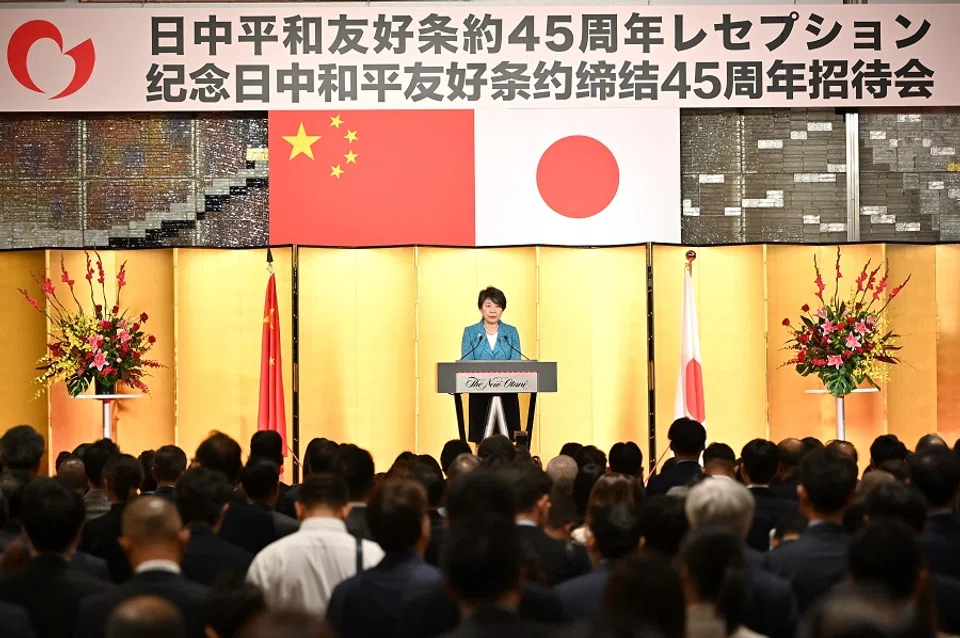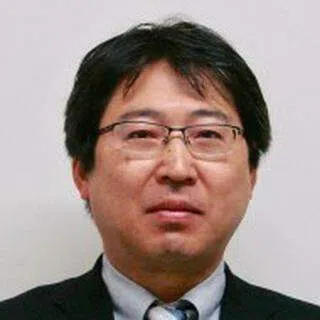Different threat perceptions in Japan and China: 45th anniversary of treaty of peace and friendship
This year marks the 45th anniversary of the Japan-China Treaty of Peace and Friendship. However, it seems that few people - especially in Japan - even know about this treaty that dates back to 1978. Results from a recent opinion poll conducted by Genron NPO also show that the Japanese and Chinese have different threat perceptions, though it is commonly agreed that military tensions are rising. Japanese academic Shin Kawashima shares his view on the issue.

The Treaty of Peace and Friendship Between Japan and the People's Republic of China (Japan-China Treaty of Peace and Friendship) was signed in August 1978 and came into effect in October of the same year - this year marks its 45th anniversary.
Several commemorative events are being held between Japan and China, but like the 50th anniversary of the normalisation of diplomatic relations between Japan and China in 2022, there is a lack of "excitement". At present, military tensions are rising in East Asia, and there is a strong need for "peace and stability". So although this treaty has become especially important, there does not seem to be a strong tendency to return to its roots.
Commitment against use of force and hegemony
The first article of the treaty states: "[Japan and China] confirm that, in conformity with the foregoing principles and the principles of the Charter of the United Nations, they shall in their mutual relations settle all disputes by peaceful means and shall refrain from the use or threat of force."
Article 2 states: "[Japan and China] declare that neither of them should seek hegemony in the Asia-Pacific region or in any other region and that each is opposed to efforts by any other country or group of countries to establish such hegemony." At the time the treaty was signed, "hegemony" was said with the Soviet Union in mind, but it is now extremely important in East Asia, where tensions are rising.
Japan-China relations are in a difficult situation. It is difficult to say that the "ship of Japan-China friendship" is moving forward, or that the "ocean of cooperation is widening".
Deteriorating Japan-China relations
In October 2018, then Prime Minister Shinzo Abe, who was visiting China in line with the 40th anniversary of the treaty, said: "A vast ocean of cooperation lies ahead of the sea routes our two countries are traveling on. Through this visit to China, let's all join forces to move the ship of Japan-China friendship forward."
However, five years later, in October 2023, Japan-China relations are in a difficult situation. It is difficult to say that the "ship of Japan-China friendship" is moving forward, or that the "ocean of cooperation is widening".
In an opinion poll conducted by Genron NPO in 2023, when asked whether they were aware that this year was the 45th anniversary of the treaty, only 17.8% of Japanese respondents answered yes, as compared to 52% of Chinese respondents. It is little known, especially in Japan, that this treaty, which is supposed to be one of the four basic documents that governs Japan-China relations, is at its 45th anniversary. In fact, the treaty was seldom mentioned by the media.
Furthermore, when asked whether this treaty was "currently functioning", only 7.4% of respondents in Japan answered yes, down from 8.3% in 2022. In China, the opposite was true, with 34.6% saying it was "functioning", up from 30.3%. However, in China, at the same time, the proportion of respondents who said it was "not functioning" increased from 58% to 68.1%.
In China, there may be a view that direct military conflict has been prevented precisely because of the treaty, and that rising military tension is due to it not functioning.
...when asked, "Will there be a military conflict between Japan and China?", 58% of Chinese respondents answered yes, up from 51% last year.

The Genron NPO's opinion poll also asks the question, "Is East Asia on the verge of conflict?" Opinions on this are largely split both in Japan and China. In Japan, perceptions are divided, with 27.4% saying yes, and 24.8% saying they do not think so. In China, the responses were split at 40.2% and 46.3%, respectively.
Who will start war in the Taiwan Strait?
However, whether or not conflict is "imminent", there is a growing awareness, especially in China, that military tensions between Japan and China are increasing. This can be seen in the fact that when asked, "Will there be a military conflict between Japan and China?", 58% of Chinese respondents answered yes, up from 51% last year. In Japan, on the other hand, the number of respondents who answered "it will happen" decreased by 4.3%.
It can be seen that the perception of the situation is different between Japan and China. China is aware that tensions are rising. In China, the overwhelming majority of respondents cited the Taiwan Strait as an area where there is a possibility of a military conflict erupting, but in Japan, the responses were split between the Korean Peninsula and the Taiwan Strait. Furthermore, while China views the East China Sea as dangerous, this is hardly the case in Japan.
This is very different from the perception of Japanese society, which considers China's military invasion of Taiwan to be the cause of a Taiwanese emergency.
In China, there is a perception that the Taiwan emergency would be caused by the US and Japan. This is very different from the perception of Japanese society, which considers China's military invasion of Taiwan to be the cause of a Taiwanese emergency.
The Chinese believe that China would be cornered into a position whereby it has no choice but to send troops to quell a "Taiwan emergency" originating from Japan, the US or Taiwan. This assessment is based on the strengthening of the relationship between Japan, the US, and Taiwan, and statements made by Japanese and American politicians.
Although there are differences in perception between Japan and China, it seems certain that concerns about military conflict are increasing to a certain extent. That is why the treaty clause that Japan and China confirm that they will "settle all disputes by peaceful means and shall refrain from the use or threat of force" is important.

However, there is also the view that military tensions are rising because the treaty is not functioning. So how can the treaty be further activated? It will certainly help if China and Japan both strengthen their security in terms of deterrence.
In addition, we should create more opportunities for dialogue to reflect on and discuss "peace" as advocated by the treaty, and reiterate this idea during summit meetings. It may then be possible to prevent judgements based on incorrect information and to bridge gaps in understanding.




![[Photos] Fact versus fiction: The portrayal of WWII anti-Japanese martyrs in Taiwan](https://cassette.sphdigital.com.sg/image/thinkchina/3494f8bd481870f7c65b881fd21a3fd733f573f23232376e39c532a2c7593cbc)
